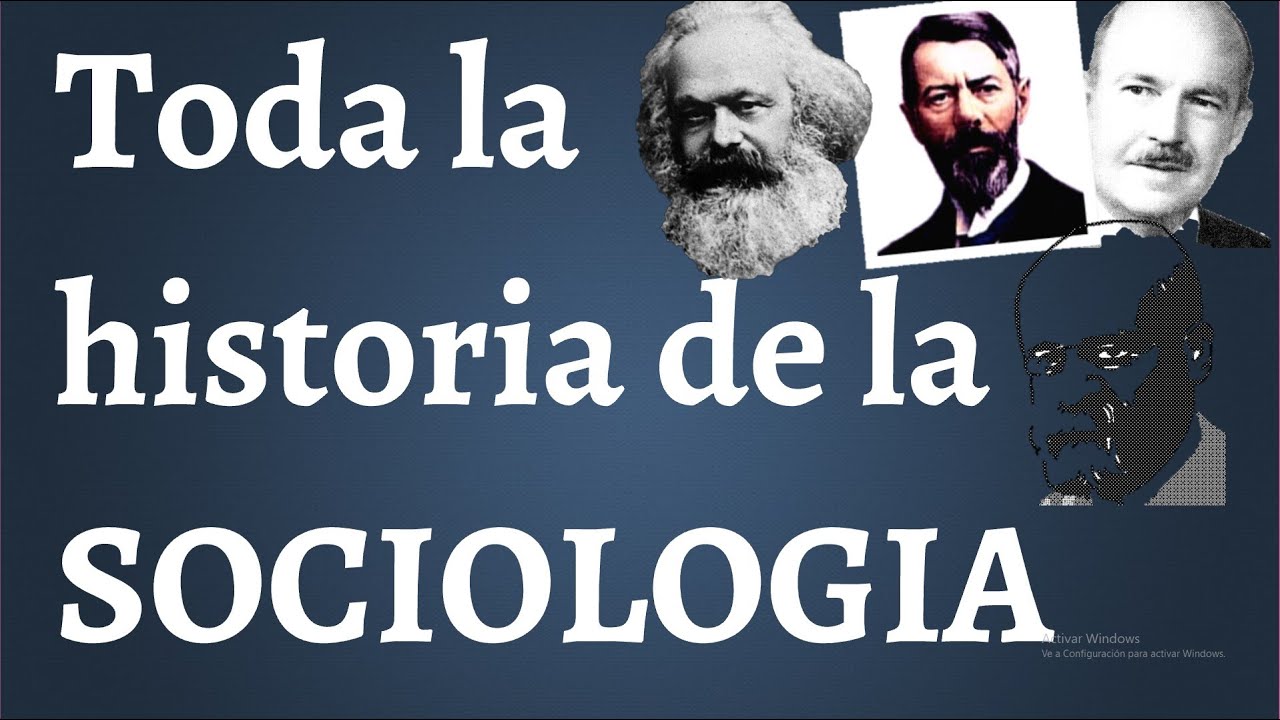2. ICSE. Sobre el concepto de sociedad
Summary
TLDRThis tutorial introduces the concept of society, exploring its evolution from medieval thought to modern sociological perspectives. The speaker delves into how society is more than just the sum of individuals, influenced by historical shifts like the Industrial Revolution. Using examples like education and medical practices, the tutorial emphasizes how social norms change over time. It also highlights the importance of context in sociological thinking, referencing thinkers like Durkheim who studied social cohesion. The goal is to provide a practical and evolving understanding of societal structures, focusing on how norms guide daily interactions.
Takeaways
- 😀 The concept of society is complex and lacks a single, universally accepted definition, with multiple perspectives offered by different sociologists.
- 😀 The goal of the session is to provide a practical, operational definition of society to aid in understanding course material.
- 😀 The transition from medieval to modern thinking, where God was no longer the sole explanation for power, marks the beginning of modern social and political thought.
- 😀 The rise of capitalism and industrialization in Europe played a key role in the development of modern political theory and sociology.
- 😀 Sociology emerged as a field to study social facts—external forces that shape individual behaviors and beliefs, as introduced by figures like Durkheim.
- 😀 The concept of 'anomie' (normlessness) is crucial in understanding social cohesion and the potential breakdown of society.
- 😀 Social norms evolve over time, as illustrated by changing medical and educational practices, such as the historical practice of not washing hands before surgeries.
- 😀 Education was historically not seen as a universal right; the modern concept of mandatory schooling for all children is a relatively recent development.
- 😀 The Ocampo sisters' example highlights the different educational experiences based on social class, illustrating how societal practices have shifted over time.
- 😀 Social norms serve as a guide for individual behavior and interactions, establishing what is considered correct or incorrect in society, which is integral to the functioning of institutions.
Q & A
What is the main focus of the tutorial mentioned in the script?
-The main focus of the tutorial is on understanding the concept of society, institutions, and the relationship between society and the state.
What is the importance of the historical context in understanding society?
-The historical context is important as it helps us understand how societal structures evolved, particularly by tracing back to the shift from medieval thought to modernity, where the concept of society began to develop independently of divine power.
What does the speaker mean by stating that society is 'something more than the sum of individuals'?
-The speaker is highlighting that society is a complex and unique entity, where the interactions and structures between individuals create something greater than just a collection of people. It is a totality with its own dynamics.
What is the significance of the sociological perspective in studying society?
-The sociological perspective allows us to understand social facts and behaviors that shape human interactions. It emphasizes that social phenomena exist outside the individual, shaping how people think and act, often without their conscious awareness.
How does the example of handwashing in the 19th century relate to the concept of society?
-The example of handwashing practices shows how societal norms and practices evolve over time. What was once not considered necessary (e.g., handwashing before medical procedures) becomes an accepted norm as society's understanding of health and hygiene changes.
Why does the speaker refer to Emile Durkheim's concept of 'anomie'?
-Durkheim's concept of 'anomie' refers to the breakdown of social norms and values, leading to confusion or disintegration of social order. The speaker references it to illustrate how sociology studies the stability and functioning of societies.
What role do institutions play in society according to the script?
-Institutions are crucial in society as they establish the norms, rules, and practices that guide interactions. They help maintain social order by shaping behavior and ensuring cohesion within the society.
How has the concept of education changed over time, according to the speaker?
-The concept of education has evolved significantly. While early education was reserved for the elite, in modern times, education is viewed as a right for all children. This shift reflects changing societal norms about equality and access to knowledge.
What is the relationship between societal changes and individual behavior, based on the script?
-Societal changes directly influence individual behavior. The norms and values that emerge from societal structures guide individuals in determining what is considered 'correct' or 'acceptable' in their actions and interactions.
What does the speaker mean by 'moral' in the context of the society and its institutions?
-In this context, 'moral' refers to the rules and norms that govern social interactions. These moral guidelines help maintain order by prescribing what is deemed right or wrong within a given society, and they are integral to the functioning of institutions.
Outlines

此内容仅限付费用户访问。 请升级后访问。
立即升级Mindmap

此内容仅限付费用户访问。 请升级后访问。
立即升级Keywords

此内容仅限付费用户访问。 请升级后访问。
立即升级Highlights

此内容仅限付费用户访问。 请升级后访问。
立即升级Transcripts

此内容仅限付费用户访问。 请升级后访问。
立即升级浏览更多相关视频

Toda la Historia de la SOCIOLOGIA

Filosofia Moderna | Períodos da História da Filosofia - Brasil Escola

Pengantar Teori Sosiologi Modern I

Ciencias Sociales Historia del pensamiento sociológico

Política Medieval - Filosofia Política na Idade Média (Parte 2)!

PENGANTAR SOSIOLOGI: PENGERTIAN, SEJARAH DAN PERAN #1
5.0 / 5 (0 votes)
